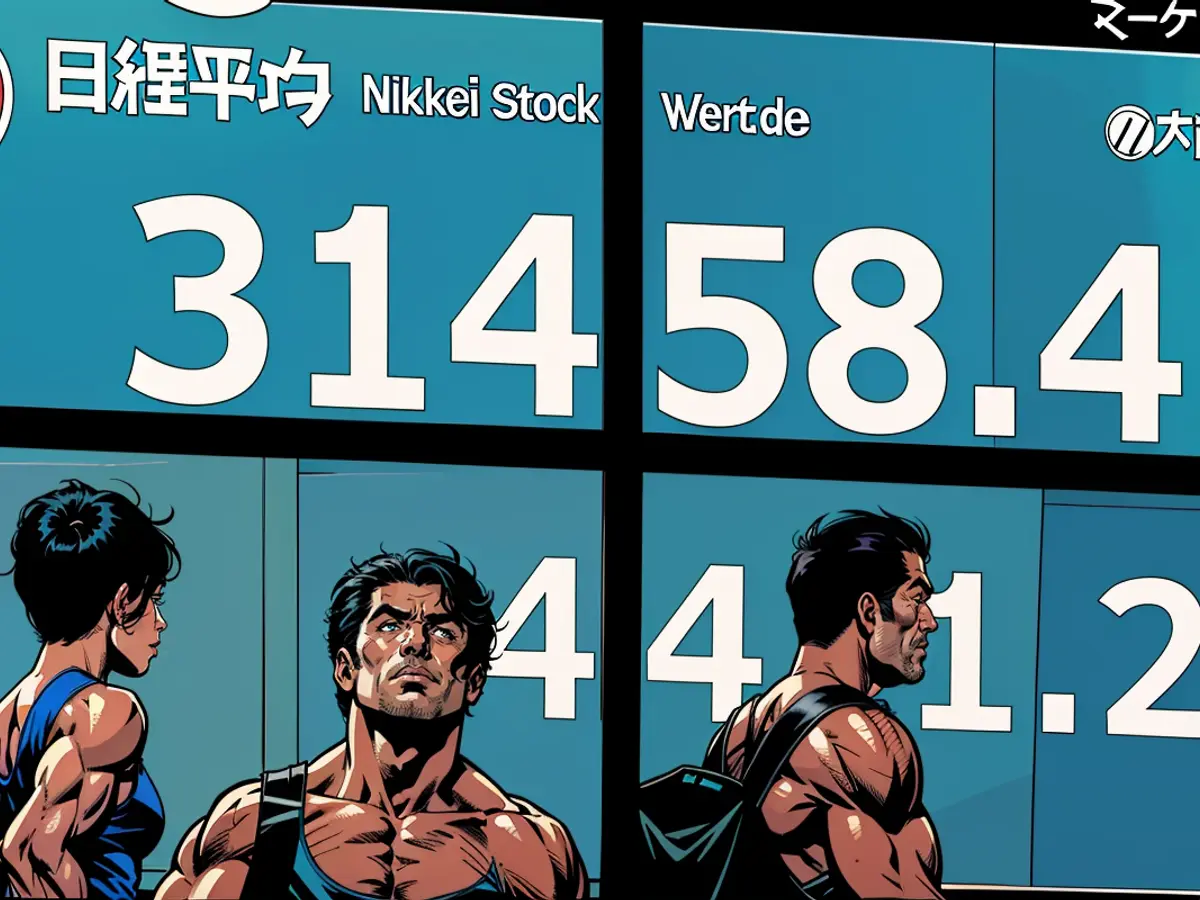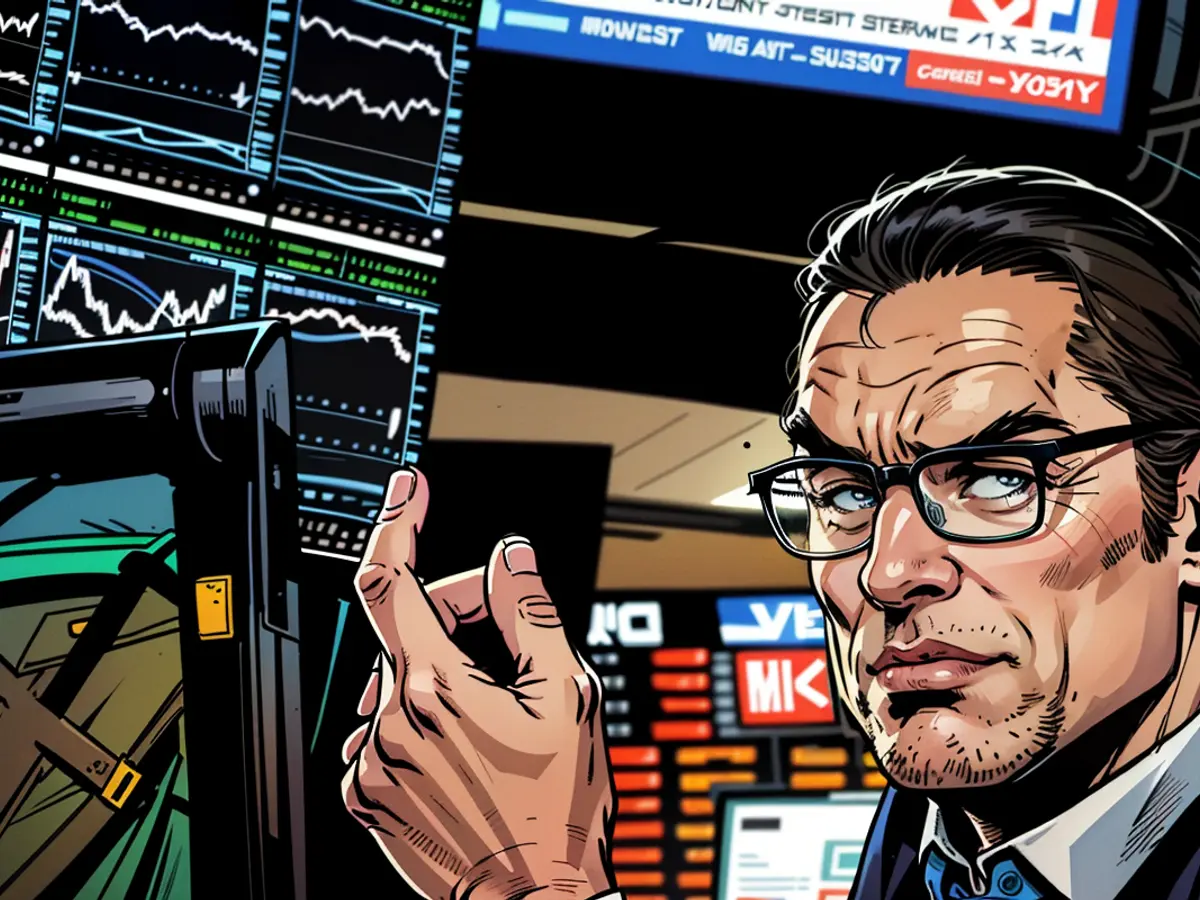Table of Contents
- Where are the biggest price losses occurring?
- What are the reasons for the crash in Asia?
- Why are European stocks also falling?
- What role do central banks play?
- What does the market crash mean for investors?
- How could central banks react?
- What are the prospects for the stock market?
- Stock market panic: What the crash means for the economy and investors
Renewed fears of an economic crisis in the US and concerns about an escalation in the Middle East have sparked panic on stock markets. The German benchmark index Dax has fallen for the third consecutive day. While it reached a record high of around 18,893 points in May, the gain since the beginning of the year has now shrunk to a few meager percent.
There was another sell-off in Asia, where technology stocks plummeted, which also had an impact on Europe. In addition to stocks, highly speculative cryptocurrencies were under strong selling pressure. With the tense situation on the markets, here are some important questions and answers.
Where are the biggest price losses occurring?
Especially Asian stock exchanges were hit hard on Monday. The Nikkei 225 plunged by 12.4 percent, after the Japanese benchmark index had reached a historic high in mid-July. In Seoul, the South Korean benchmark index Kospi fell by almost 9 percent, and in Taipei, the Taiex lost more than 8 percent, marking the largest single-day loss ever recorded on a closing basis. On the crypto market, Bitcoin fell to the level of February.
What are the reasons for the crash in Asia?
In Tokyo, it was mainly the recent significant increase in the Japanese yen that put significant pressure on the stock prices of Japanese companies, which are heavily dependent on exports. A strong yen tends to make Japan's exports more expensive. In Seoul and Taipei, technology stocks suffered mainly due to a report that chipmaker Nvidia is delaying the launch of new AI chips due to so-called design flaws. Nvidia had been the main beneficiary of the boom in artificial intelligence (AI) and the driving force behind the general market rally.
Why are European stocks also falling?
One reason is that the enthusiasm for the topic of artificial intelligence (AI) has cooled, and with it, a driving force behind the recent rally in Europe has disappeared. "The growth in the area of AI comes with enormous costs, which narrows the margins of companies and suddenly makes high stock valuations appear exaggerated," wrote Jochen Stanzl, market analyst at CMC Markets.
What role do central banks play?
According to Stanzl, the restrictive monetary policy of the European Central Bank and the US Federal Reserve is now having an effect. The major central banks, with the exception of Japan, had raised interest rates significantly in recent years to combat high inflation resulting from the COVID-19 pandemic and the Ukraine war. While inflation is now largely under control, the side effects of the tight monetary policy are becoming apparent: high interest rates have made investments and loans more expensive, potentially slowing economic growth beyond the desired level, observers fear. Recent unexpectedly weak labor market and sentiment data from the US have fueled fears of a recession in the United States. As the world's largest economy, a economic crisis there would put pressure on many other countries.
What does the market crash mean for investors?
The market crash means that investors are facing significant losses in their portfolios. The value of their investments has fallen significantly, and there is uncertainty about whether the market will recover in the near future. Investors may also face higher borrowing costs due to the increase in interest rates, which can further impact their investment decisions.
"First and foremost, it seems that strong nerves are required," wrote equity strategist Markus Reinwand of Landesbank Hessen-Thüringen. However, a correction, particularly among highly-valued technology stocks, could help prevent a general overheating of the market. "Perhaps it would help to remember that stocks are a medium to long-term investment instrument," the expert added. After all, the Dax once dipped below 3600 points in 2009, experiencing the low point of the financial crisis; since then, the stock market barometer has nearly quintupled.
How could central banks react?
Market speculations are rife about significant or even extraordinary interest rate cuts, as seen with the US Federal Reserve, to stimulate the economy. However, such action could, instead of providing reassurance, send prices further downward. Investors might interpret drastic and unexpected rate cuts as a sign that the economic situation is worse than previously known.
What are the prospects for the stock market?
The fundamental attractiveness of the stock market, particularly compared to fixed-income securities that yield little return after inflation, remains unchanged, according to experts. "We do not expect the current weakness phase to be followed by a severe and prolonged crisis," said DZ Bank analyst Soeren Hettler optimistically. The earnings expectations of companies in major indices for the next two years suggest growth.
However, geopolitical tensions, such as those in the Middle East conflict, could continue to put pressure on the markets. There is widespread concern that a potential hard confrontation between Israel and its arch-enemies could have unforeseeable consequences for the region, which would also bode ill for the stock market.
The Nikkei 225, Japan's leading stock index, experienced a significant decline of 12.4% after reached a historic high in mid-July, contributing to the overall sell-off in Asia. The reasons for the crash in Asia include the significant increase in the Japanese yen putting pressure on export-dependent Japanese companies and technology stocks, particularly in South Korea and Taipei, being affected by a report of chipmaker Nvidia delaying the launch of new AI chips due to design flaws.








